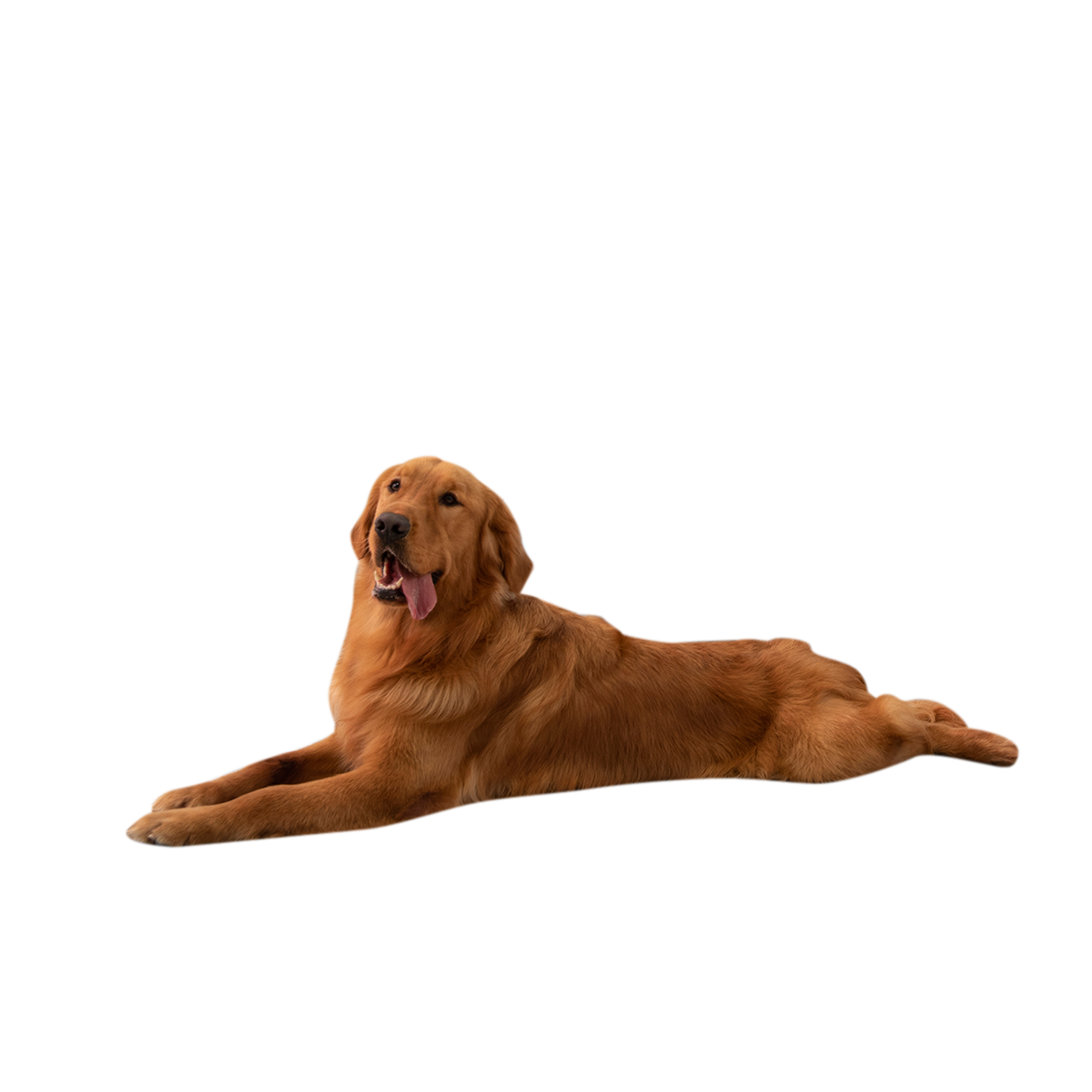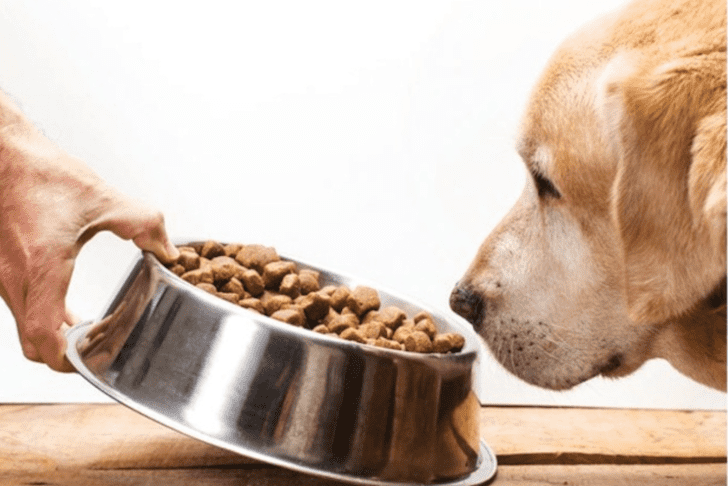Senior dogs can benefit from wet food due to its high moisture content and easier digestion. It can help with hydration and may be preferable for dogs with dental issues or who have lost their appetite.
As dogs age, their needs change, and wet food can provide a softer texture that is gentle on their teeth and gums. Additionally, the increased aroma and taste of wet food can entice picky older dogs to eat, ensuring they receive essential nutrients.
However, it’s important to consult with your veterinarian to determine the best diet for your senior dog’s specific health needs.
:strip_icc()/best-dog-food-for-older-dogs-4579808-39040096ef9640df95cb3fcd1ba6aff6.jpg)
Credit: www.thesprucepets.com
Senior Dogs’ Nutritional Needs
Senior dogs’ nutritional needs are crucial for their health and well-being. Proper nutrition plays a vital role in maintaining their overall health and vitality as they age. As dogs advance in age, their bodies undergo changes in nutritional needs due to factors such as reduced metabolism and potential health issues.
Senior dogs may benefit from wet food as it provides them with increased hydration and can be easier for them to consume, especially if they have dental issues. However, it’s essential to select high-quality wet food that meets their specific nutritional requirements to ensure they receive the essential nutrients they need in their senior years.
Benefits Of Wet Food For Senior Dogs
Senior dogs benefit from wet food as it provides enhanced hydration.
Due to its moisture content, wet food helps senior dogs stay better hydrated.
In addition, wet food is easier for senior dogs to chew and digest.
Considerations Before Switching To Wet Food
Should senior dogs eat wet food? Before making the switch, there are a few important considerations to keep in mind. First and foremost, consulting a veterinarian is crucial. They can provide guidance specific to your dog’s needs and help determine if wet food is the right choice. Additionally, understanding ingredient labels is essential. Look for high-quality ingredients such as meat, vegetables, and grains. Avoid artificial preservatives, colors, and fillers. Wet food can provide benefits such as increased hydration and ease of digestion for senior dogs.
However, it’s important to introduce any dietary changes gradually to prevent upset stomachs. Overall, the decision to switch to wet food should be based on your dog’s individual health needs and preferences. Keeping these considerations in mind will help ensure your senior dog receives the best nutrition possible.
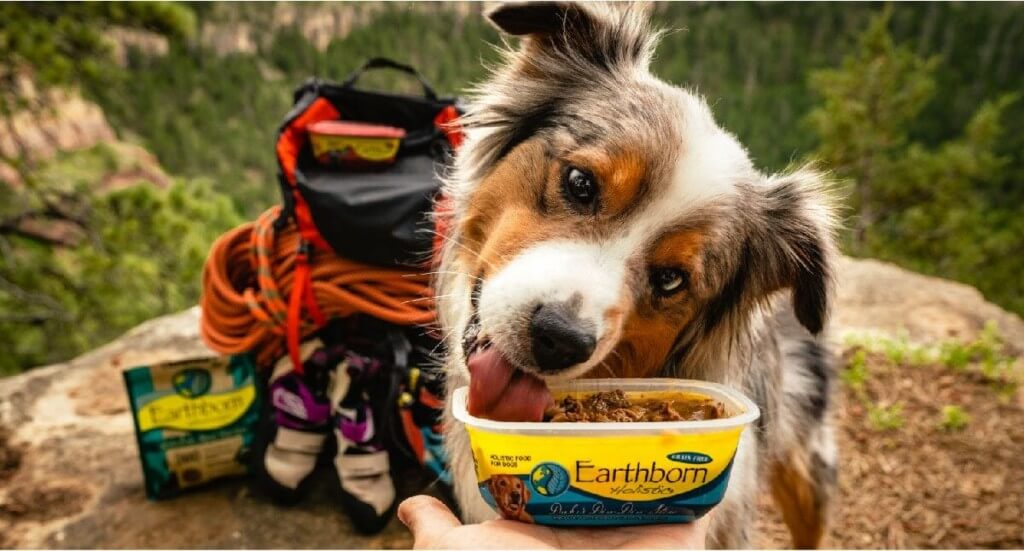
Credit: www.earthbornholisticpetfood.com
Types Of Wet Food For Senior Dogs
Specialized senior formulas are designed specifically for older dogs. These wet foods are formulated to meet the unique dietary needs of senior dogs, providing them with the necessary nutrients for their age. These formulas often contain a balance of proteins, fats, and carbohydrates, helping to maintain a healthy weight and proper muscle function in senior dogs.
They may also include ingredients such as glucosamine and chondroitin for joint health, as well as omega-3 fatty acids for brain and heart health. Additionally, these formulas are often highly digestible, making it easier for senior dogs to absorb and utilize the nutrients.
Some wet food options for senior dogs are grain-free. These formulas eliminate grains such as wheat, corn, and soy, which can be difficult for dogs with sensitive stomachs to digest. By focusing on high-quality proteins and other nutritious ingredients, these grain-free options provide senior dogs with a balanced and easily digestible meal.
Furthermore, grain-free wet food often contains natural antioxidants and dietary fiber, promoting a healthy digestive system and supporting the overall well-being of senior dogs.
Managing Portion Control
Determining the right portion size for senior dogs is crucial in managing their overall health and well-being. Senior dogs have different dietary needs compared to younger dogs, and wet food can be a great option for them. The moisture content in wet food helps to keep senior dogs hydrated, and it is generally easier for them to chew and digest.
When it comes to managing portion control, it is important to consider the age, activity level, and weight of your senior dog. Consulting with a veterinarian is always recommended to determine the correct portion size for your dog. Overfeeding can lead to weight gain and other health issues such as obesity and joint problems.
To avoid overfeeding, measure the portion of wet food based on your dog’s specific needs. Divide the daily food intake into multiple smaller meals throughout the day to prevent overeating. Always monitor your dog’s weight and body condition to make necessary adjustments to their portion size.
In conclusion, wet food can be a suitable option for senior dogs, but it is essential to manage portion control to ensure their overall health and well-being.
Potential Drawbacks Of Wet Food For Seniors
Senior dogs can face dental health concerns when consuming wet food, as the soft texture may not effectively clean their teeth. Additionally, the cost considerations of exclusively feeding them wet food can add up, as it tends to be more expensive than dry alternatives. While wet food can provide hydration and be easier to chew for some seniors, it’s important to consider the potential drawbacks, including dental health and cost implications.
Transitioning To A Wet Food Diet
Senior dogs can benefit from a wet food diet due to its high moisture content, which aids in hydration. Transitioning to wet food should be done gradually to avoid digestive upset. Begin by mixing small amounts of wet food into their current diet and gradually increasing the proportion over several weeks.
Monitoring for allergies is important during this process, as some dogs may have sensitivities to specific ingredients in wet food. Keep an eye on any signs of digestive issues or skin irritations. If any problems arise, consult with a veterinarian for guidance on suitable wet food options for your senior dog.
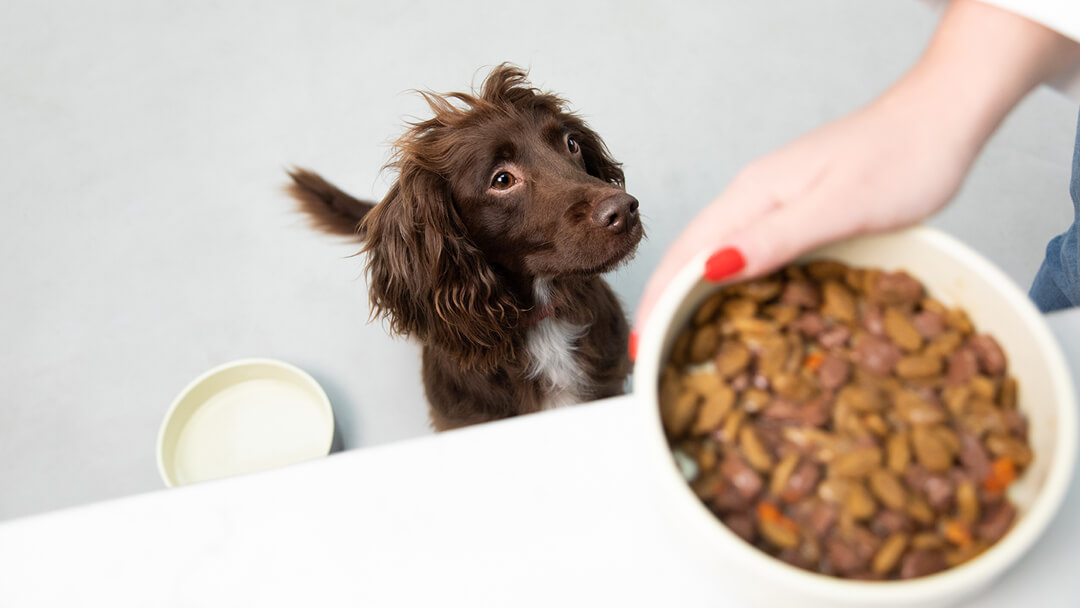
Credit: www.purina.co.uk
Final Thoughts On Wet Food For Senior Dogs
For senior dogs, wet food offers easier digestion and increased hydration levels, which are essential for their aging needs. The higher moisture content aids in maintaining kidney health and supports dental health with its soft texture. Consider wet food as a beneficial option for your senior furry companion.
| When feeding senior dogs, consider incorporating a mix of wet and dry food. |
| Wet food provides hydration and can be easier for older dogs to eat. |
| Tailoring their diet to their individual needs is crucial for their well-being. |
Frequently Asked Questions
Is Dry Or Wet Food Better For Older Dogs?
For older dogs, wet food is better because it’s easier to chew and digest. It can also help keep them hydrated. But, dry food can help maintain dental health. A combination of both types can provide a balanced diet for older dogs.
How Much Wet Food Should A Senior Dog Eat?
A senior dog should eat about 1/2 to 1 can (13. 2 oz) of wet food per day, divided into two meals. Adjust the amount based on your dog’s size, activity level, and any health issues. Consult your vet for personalized feeding recommendations.
What Is The Best Thing To Feed An Old Dog?
The best thing to feed an old dog is a high-quality, senior-specific dog food that is tailored to their age and health needs. This type of food typically has reduced calories, added joint support, and easier-to-digest ingredients to keep them healthy and maintain their overall well-being.
What Is The Best Wet Food For Elderly Dogs?
The best-wet food for elderly dogs is one that is specially formulated for their aging needs, such as easy-to-digest ingredients and joint support. Look for options with high-quality proteins and nutrients to support their overall health and well-being.
Conclusion
In a nutshell, wet food can be a beneficial option for senior dogs. It offers hydration and easier digestion. However, ensure it meets their nutritional needs. Consulting a vet for personalized advice is key. Ultimately, prioritizing your senior dog’s well-being is the ultimate goal.
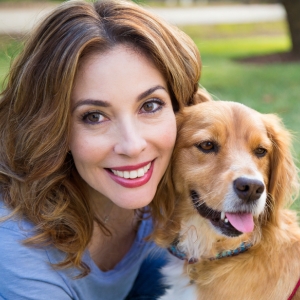
Hi, I’m Olivia Davis. I am a certified nutritionist with a love for dogs that knows no bounds. At Dog Advisor Pro, I provide extensive insight into dog nutrition. A healthy diet is fundamental to a dog’s well-being and aims to empower dog owners with the knowledge they need to make informed choices about their furry friend’s diet. My goal is to make the field of dog nutrition easy and enjoyable for every pet parent.
